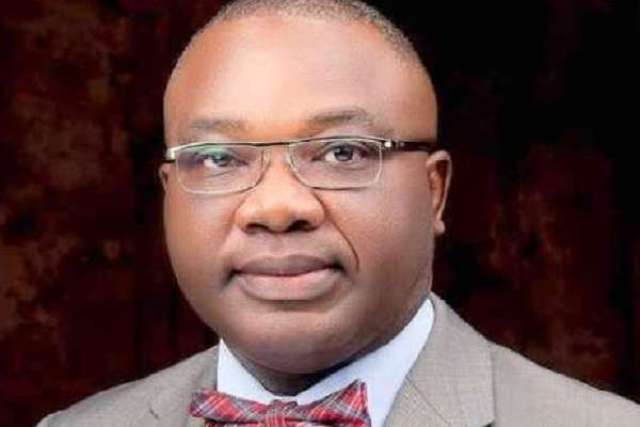As NDI-IRI faults INEC’s cover up of election day challenges
The National Human Rights Commission (NHRC) has said that the presidential and national assembly elections that took place on Saturday, February 25, were characterised by violence, vote-buying, and voter suppression, among others.
The commission in its report entitled ‘Preliminary statement of the 2023 presidential and national assembly elections,” and signed by its executive secretary, Mr. Tony Ojukwu, stated that it received reports of electoral malfeasance from states such as Rivers, Kogi, Delta, Lagos, Sokoto, among others.
“There were various reports of attempts to intimidate voters and INEC officials by party supporters and thugs.
“These reports were received from states such as Rivers, Delta, Lagos, Kogi and Imo. NHRC monitors reported that in eight per cent of polling units, accreditation and voting were disrupted for various reasons, including the malfunctioning of election equipment and incidents of violence,” it said.
The commission said it also got reports of vote-buying from 42 locations across the country, particularly in Lagos, Imo, Sokoto, Jigawa, Edo, Nasarawa, Jigawa and Kogi states. Voters were offered money or other incentives to influence their votes.
The commission also observed the inability of law enforcement agents to checkmate violence at the polling units, adding that cases of human rights violations by security personnel were also reported.
It also reported poor crowd management adding that, “in some polling units, the crowd was overwhelming and the security personnel were few in number.”
Meanwhile, the International Republican Institute (IRI) and the National Democratic Institute (NDI) have faulted the elections saying they fell short of Nigerian citizens’ legitimate and reasonable expectations.
In a joint preliminary report released yesterday, the organisations highlighted failures of logistics, challenges with voter registration and voter card distribution, inadequate communication by INEC, lack of transparency in the publication of election data, and unchecked political violence before and during the elections as reasons for their conclusion.
The report noted that these shortfalls “overshadowed incremental administrative gains achieved in the pre-election period, and impeded a substantial number of citizens from participating in voting.”
NDI-IRI also credited the ongoing cash crunch and fuel crisis with imposing “excessive burdens” on voters and election officials while marginalised groups, especially women, continued to face barriers to seeking and obtaining political office.
It added that the logistical and electoral insecurity challenges were foreseeable and avoidable but became a missed opportunity when INEC failed to address them.
It further said logistical challenges led to the delay in commencement of voting in most parts of the country.
“Moreover, voters’ trust in the process has been considerably shaken by INEC’s lack of transparency about the cause and extent of election day challenges,” it added.
It commended Nigerians who in spite of these challenges “once again demonstrated their commitment to the democratic process, displayed extraordinary resilience and resolve to have their voices heard through the ballot, often waiting for several hours due to logistical shortcomings.”
The NDI-IRI also lamented the violation of the electoral act on guidelines for setting up polling units.
As part of its report, it recommended that INEC should
*engage in proactive, regular and transparent communications and outreach to the Nigerian public and relevant stakeholders related to electoral developments, electoral delays, cancellations, etc, and make such information immediately available on its website.
*consider redesigning the voting cubicle to guarantee ballot secrecy and enhance accessibility to PWDs. Also, lawmakers and INEC should work together to ensure contingency funding that can inoculate against economic and other unanticipated crises.
*distribute voters more equitably among polling units and consider adjusting the number of poll workers assigned to each polling unit based on registered voters to reduce the time spent waiting in queues and completing ballot sorting and counting processes.
*INEC and civil society should expand civic and voter education efforts well in advance of election day to improve the application of procedures and citizens’ understanding of the electoral process.




























































